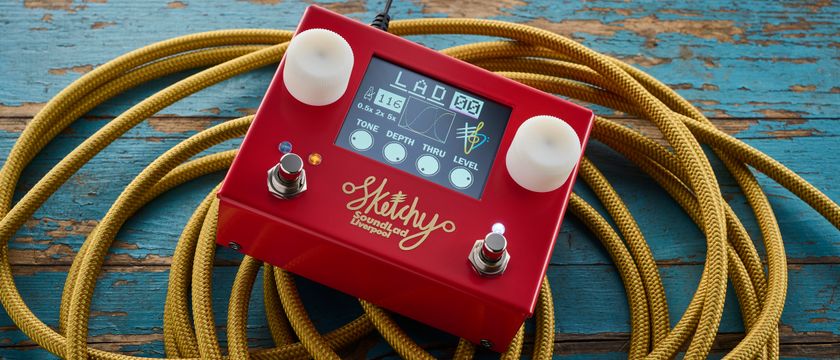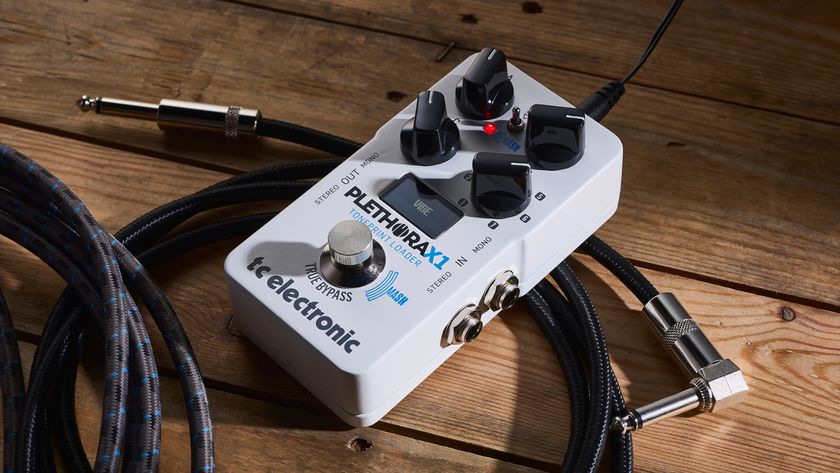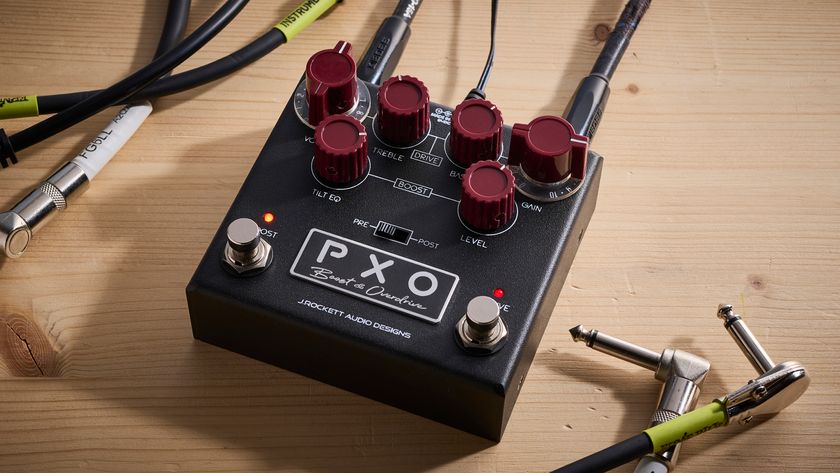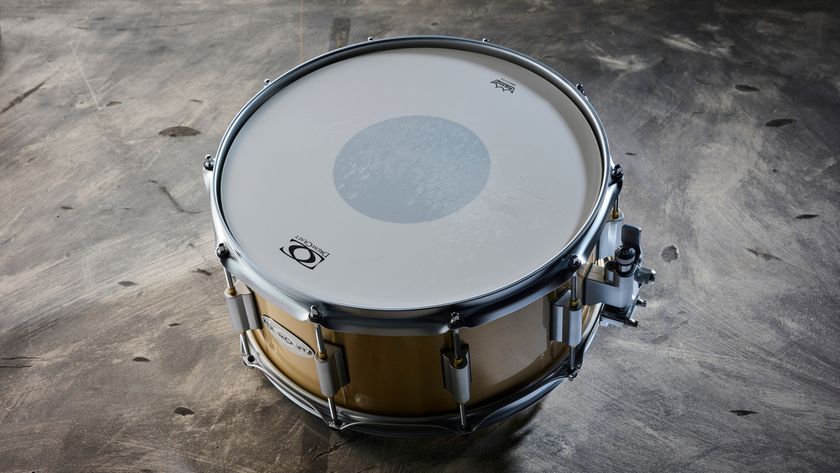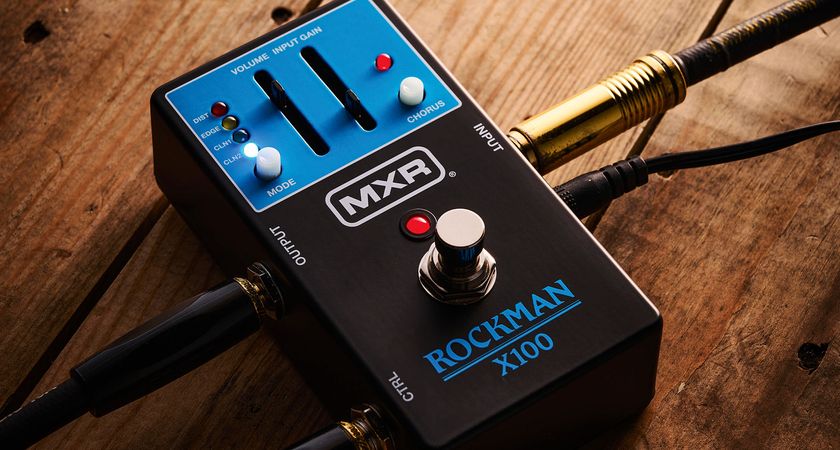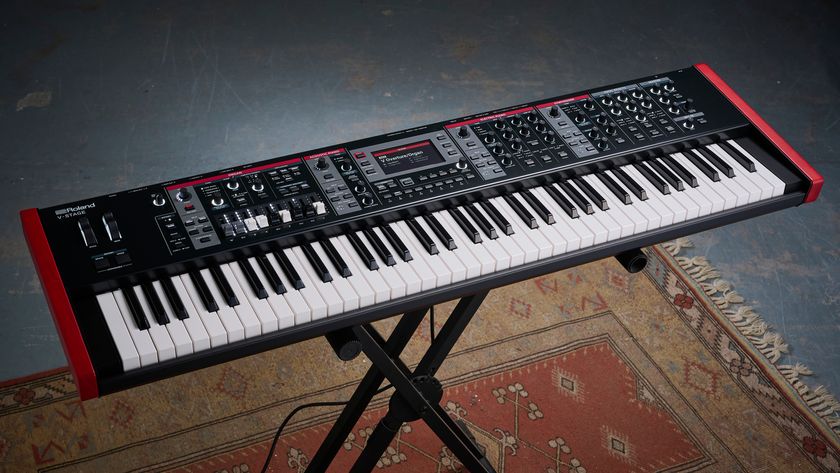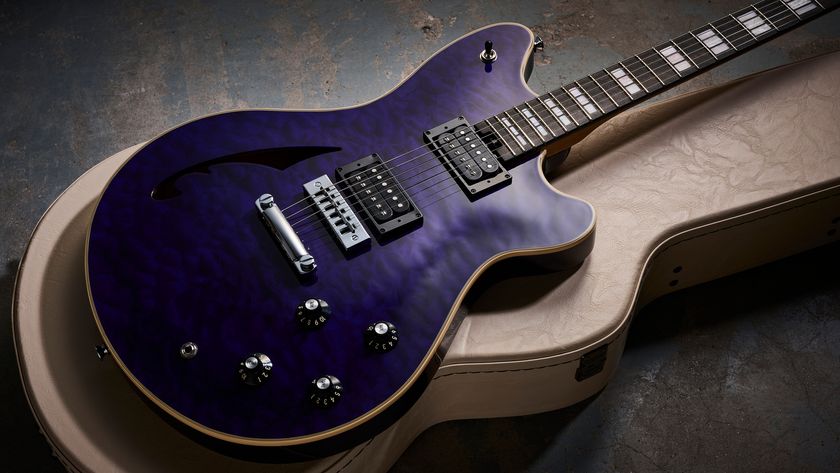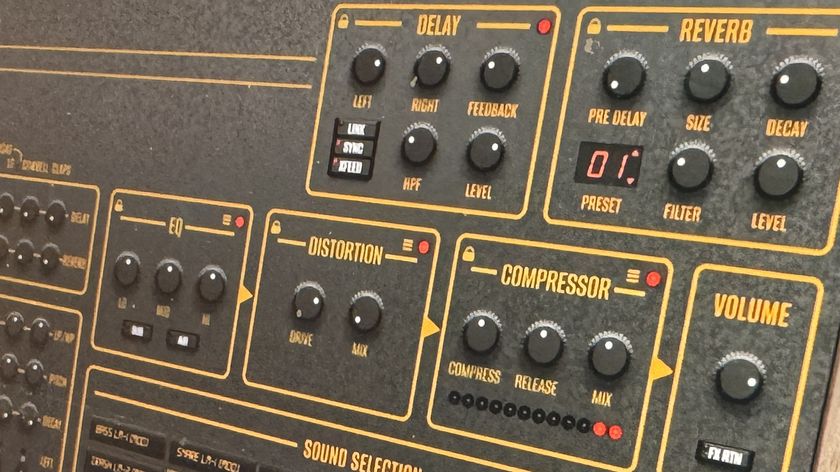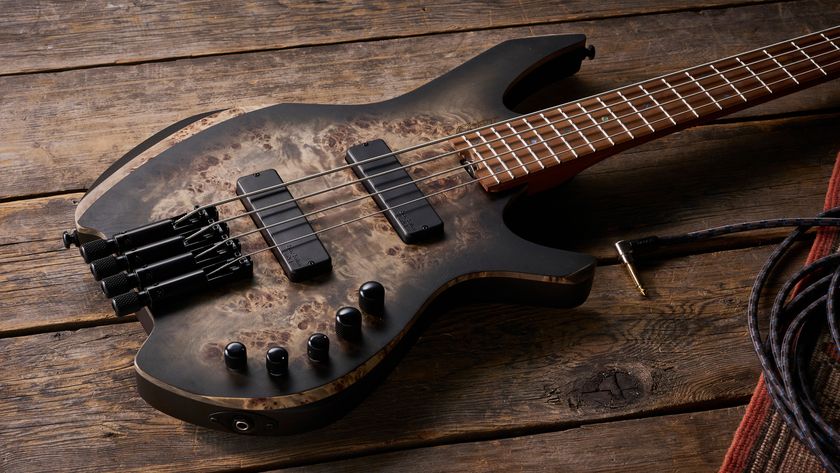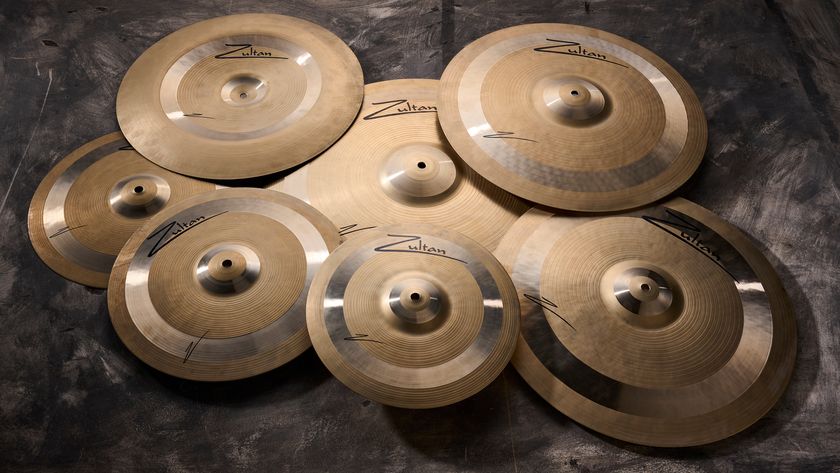MusicRadar Verdict
A combination of three sonic elements that can be mixed together makes this a versatile workhorse for any pedalboard.
Pros
- +
Extra-small footprint, compression and distortion in one pedal.
- +
Blend knob.
Cons
- -
It’s easy to spend your playing time trying the different knob settings instead...
MusicRadar's got your back
The name may be a bit of a mouthful but we guess Pigtronix had to go with it to illustrate how the Philosopher’s Tone Germanium Gold Micro fits into its range.
First, there was the original Philosopher’s Tone, a relatively large pedal that Pigtronix recently condensed into the Philosopher’s Tone Micro, a much more pedalboard friendly iteration, although it lost the original’s Grit knob in translation. Now the Grit knob is back in this new micro version which, in a way, is truer to the spirit of the original Philosopher’s Tone in that it’s a pedal that provides compression and distortion - plus, that Grit knob is coupled to some Germanium diode circuitry for the latter.
Leaving the Grit knob unused for the minute, and setting the Sustain knob for the minimum amount of compression, there’s plenty of extra whoomph in this pedal from above 2 o’clock on the volume knob to give the front end of your amp a good kick - clean boost with a hint of compression. Other juxtapositions of the two knobs offer up a range of compressions from keeping your rhythms under tighter control to increasing sustain with distinctive bloom as the note takes off.
Higher compression levels add a bit of ‘snap’ to your notes but it’s not too squashy and, if you employ the Blend knob, that lets you set a mix of dry and compressed sound, you can put some naturalness back or add some compression for enhancement.
If that was all it did this pedal wouldn’t be too shabby but the aptly named Grit knob adds a gritty drive to the compressed portion of the sound from a raw edge to full amp-like raunch. It adds so much extra flexibility, ticking plenty of boxes. Dirty boost? Yes. Compression with a jagged edge? Yep. Overdrive with a touch of compression? Definitely. Heavy overdriven compression? Of course. And we get all that with the option of mixing it with the dry sound.
Trevor Curwen has played guitar for several decades – he's also mimed it on the UK's Top of the Pops. Much of his working life, though, has been spent behind the mixing desk, during which time he has built up a solid collection of the guitars, amps and pedals needed to cover just about any studio session. He writes pedal reviews for Guitarist and has contributed to Total Guitar, MusicRadar and Future Music among others.

“The screaming was deafening!”: How a Japanese tour transformed the career of a weird little band known as the ‘Beatles of hard rock’
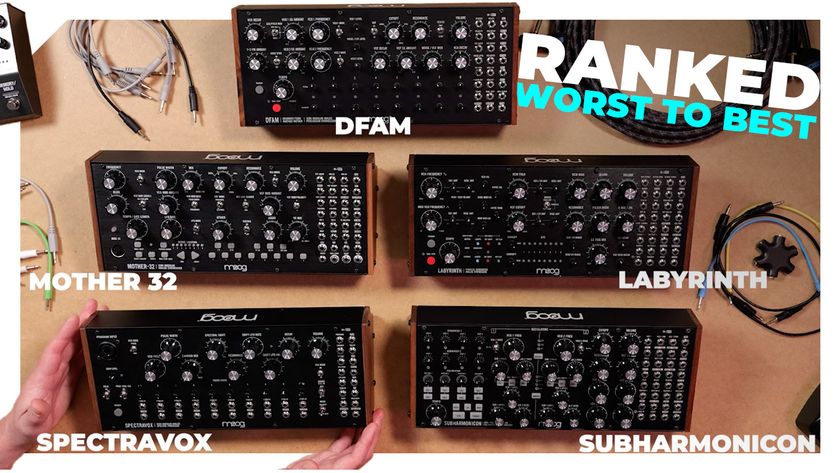
Ranked: Moog’s semi-modular ‘Mother’ synths from worst to best

“If it wasn’t for that song, that would have been the end of the band”: How one track’s sudden gear-switch led Coldplay into their imperial phase


